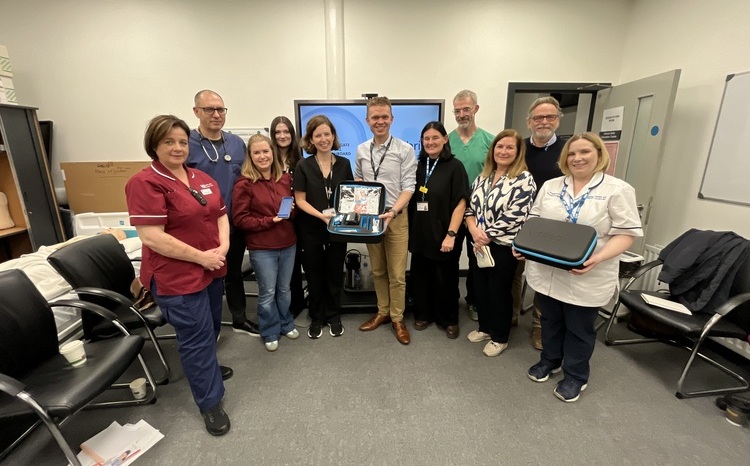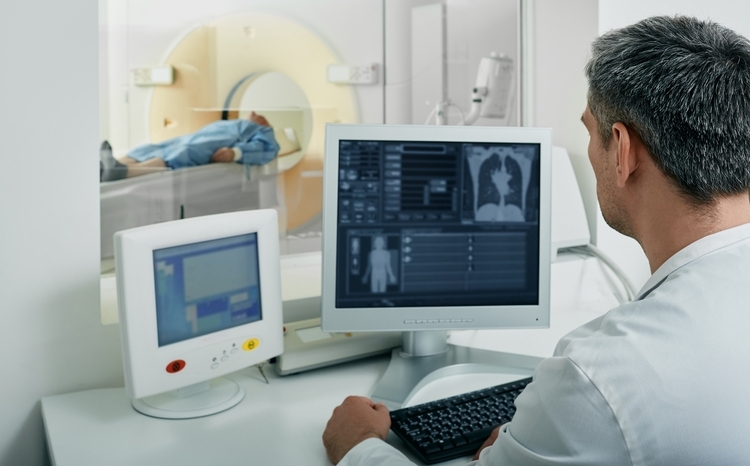CRS leads to cancer care delays at Barts
- 27 June 2008
Problems caused by the implementation of a new NHS Care Records System at Barts and the London NHS Trust have led to cancer patients requiring urgent cancer care not being seen within the government’s two week deadline.
In a new board paper, the trust said the delays in cancer patients receiving urgently needed care were due to the move to the new system: “The breaches were directly attributable to the erroneous migration of outpatient clinics at the change over to CRS.”
Sources close to the project indicate that the urgent cancer care cases form part of a wider problem with a growing backlog of inpatient and outpatient appointments not entered onto the new CRS system.
In a statement to EHI, the trust said: “The appointments of 11 patients referred to the Trust under the two week urgent cancer access target were delayed as a consequence of the introduction of CRS. The delays ranged from 2 to 31 days.
“More than half of these patients have been seen and found not to have cancer. The remainder have their appointments booked and despite being offered sooner dates have chosen to stick with the original date.”
Professor John Toy, lead cancer clinician at Barts and The London NHS Trust, added: “While we fully support targets to ensure patients are seen in a timely fashion, it is important to recognise that the two week wait is to impart a sense of urgency but not necessarily emergency. I am confident that none of these patients will have suffered clinical harm.”
Problems with the CRS, including staff being unfamiliar with the system, being required to follow unfamiliar processes, limitations with the functionality and data completeness issues have also contributed to the trust struggling to meet the national target for emergency admissions to be seen in less than four hours.
In April Barts and the London became the first big teaching trust in London to migrate to a new Cerner Millennium CRS system, supplied by BT as part of the £12.7 billion NHS IT programme. In June, Release 1 of the Cerner CRS system was installed by BT at the Royal Free Hospital.
But board papers now make clear the new CRS computer system has caused significant problems at Barts and the London, affecting both patient care and the trusts ability to report on activity and performance. The problems follow a similar pattern to those reported by a number of sites in the south of England who have received an almost identical version of the software from Fujitsu.
The trust has had to move to quarterly activity reporting to the primary care trusts that commission services from it and is unable to report effectively on 18-week waits. Unless the problems are fixed the trust says it risks having its reputation damaged and losing activity income.
The trust says that data generated on the key 18 week referral to treatment target, can no longer be relied on: “18 Week Referral to Treatment data completeness is sub-optimal so the Board should be cautious about the accuracy of the figures…”
EHI understands that the problems in part stem from backlogs of data building up, which trust staff have not entered onto the CRS system, as many find it slow and cumbersome to use. The backlog has grown despite extra staff being taken on to enter data.
Similarly the trust says it cannot be clear how many patients are now waiting more than 20 weeks for treatment. These problems are said to be creating significant financial risks for the trust. “The Trust does not currently have robust activity and patient treatment income due to ongoing recording issues arising from the implementation of the CRS system.”
Further difficulties have been caused by the impact the implementation of the CRS system has had on activity recording, “patient treatment income is a significant risk for the Trust,” says a trust board paper.
Among the problems identified is overstatement of activity in areas including maternity, “it is very probable that activity in the CRS data warehouse has been overstated in some areas and this may create significant underperformance when these errors have been corrected,” warns the board paper.
“Further issues have arisen in CRS such as the creation of spurious spells for some specialties and duplicate outpatient attendances which have falsely inflated activity.” The board paper says it is hoped these errors “will be corrected in July”.
The trust finance director’s board paper concludes that the trust faces serious financial risks due to “failure to correctly report out of CRS due to system issues and failure to follow the correct workflows in CRS resulting in a loss of accurate and timely activity and income”.
In addition, “Delays in clinical coding, due to problems with CRS and lack of coder capacity, will increase the risk of being unable to monitor activity and income on a monthly basis with PCTs…” As an interim measure the trust will stop reporting monthly and move to quarterly reporting of activity to its PCT commissioners.
However, if it fails to resolve the CRS problems the trust faces significant difficulties. “Failure to achieve the 18 week targets due to the lack of a robust Trust capacity plan which will not only lead to loss of reputation but could trigger penalty payments under the 2008/9 contract with PCTs.”
BT says the London version of Millennium is locally customised to meet the needs of each individual trust, and so the problems should not affect the whole cluster.
A trust spokesperson said the issues were currently being resolved by BT and the London Programme for IT (LPfIT).
“The outstanding issues resulting from the implementation of CRS are in the process of being resolved,” she said
A LPfIT spokesperson, added: “As with any go-live LPfIT continues to work together with BT and the Trust to help resolve any issues that may arise from implementation of the Cerner CRS system.”




